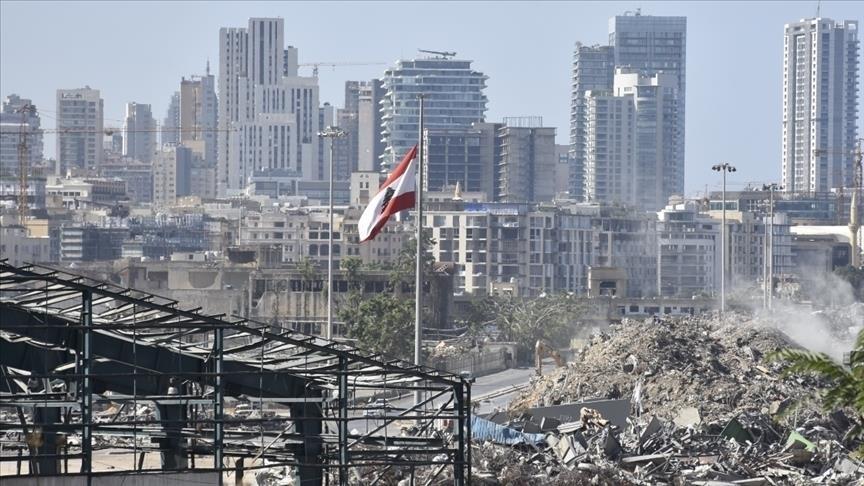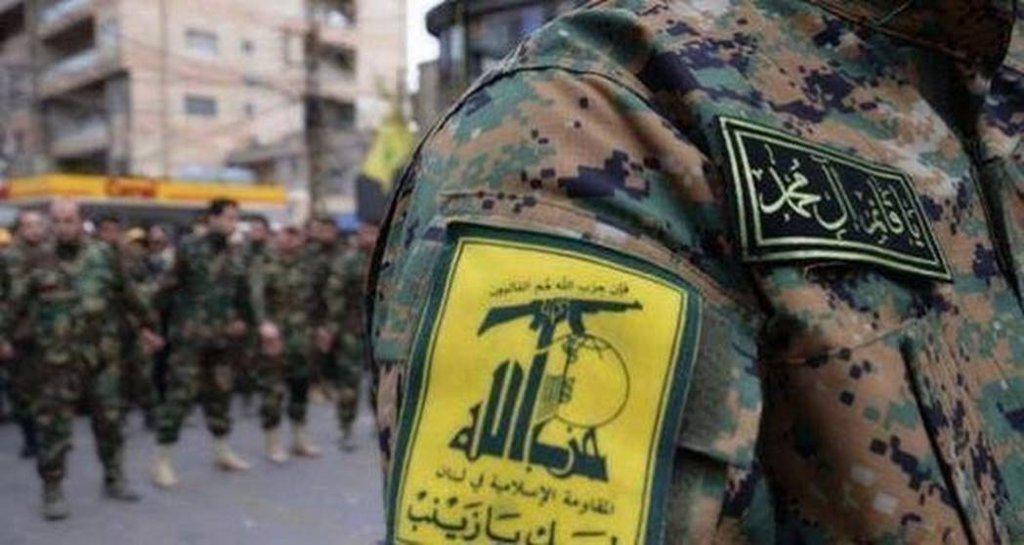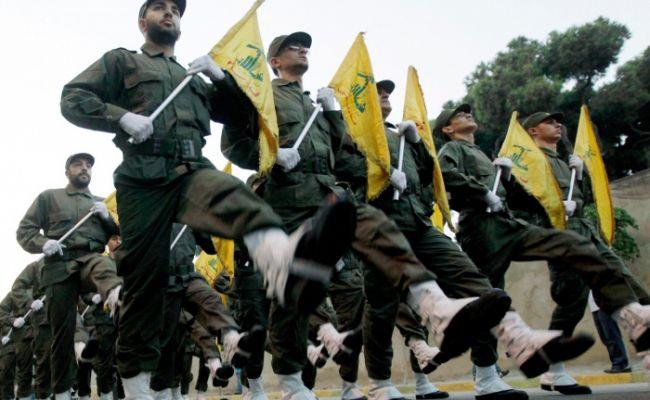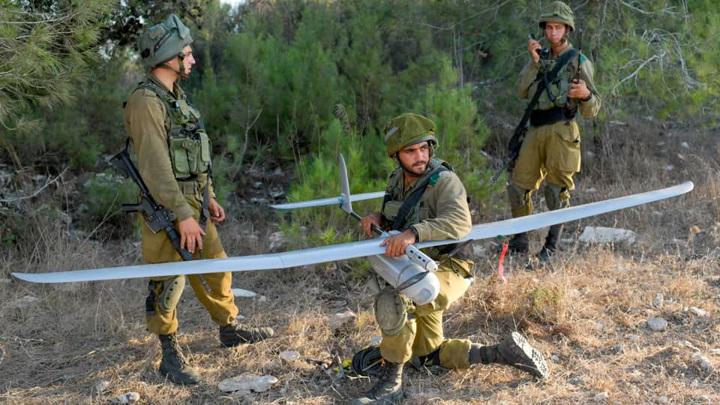Lebanon and the fall of Hezbollah Analysis by Maxim Petrov
Representatives of the Executive Council, the leadership of the Lebanese pro-Iranian Hezbollah organization, have recently criticized Israel. They stated that the tension around the al-Aqsa Mosque in Jerusalem "will not go unanswered". To recall, clashes took place there between Palestinian demonstrators and Israeli police. The comments were published in Iranian media close to the leadership of the Iranian regime, most notably Fars News, which shows Tehran's support for Hezbollah's statement.
Fars News reported that Hassan al-Baghdadi, one of the leaders of Hezbollah who is on the US list of "persons involved in terrorist activities," said that "Israeli attacks on Muslim believers are a clear attempt to damage the holy shrines and feelings of Muslims." Al-Manar, Hezbollah's satellite television channel, echoed his words, adding that Israel's actions will not go unanswered.
These statements by the Iranians and Hezbollah are linked not only to developments in Israel and Palestine, but also to upcoming elections in Lebanon itself. The country's legislative elections for Lebanese living abroad will be held May 6-8, and inside Lebanon on May 15.
Hezbollah, whose influence inside Lebanon has wavered greatly in recent years, expects to draw attention to the conflicts between Muslims and Israel and to present itself as the defender of Muslims: Palestinians and Lebanese, Shiites and Sunnis. This is important to it because this is the political stance the party has adopted for a long time and this is how it has ensured its popularity.

Lebanon's population of 7 million consists of several ethno-religious groups, three of which are the largest - Christians, Shiite Muslims, and Sunni Muslims. Parliamentary seats are equally distributed between Muslims and Christians. The pro-Iranian Hezbollah and the other pro-Iranian party Amal are usually supported by Shiites, who make up about 40% of the population. Hezbollah has 12 members of parliament out of 128 and two ministers out of the available 30 in the government. However, this situation, which indicates very modest electoral support for the organization, does not reflect Hezbollah's real political importance, nor the attitude of the vast majority of Lebanese, including Shiites, toward it.
In fact, Hezbollah is what is commonly referred to as the "deep state" - the genuine centre of the formation and making key political, economic, and military decisions. Organizing a more powerful army (one of the best armies in the region, financed and armed by Iran) than the Lebanese army itself, and having gained important combat experience during the war in Syria (where it fought on the side of the Assad regime), Hezbollah actually has military dominance in Lebanon. At the same time, the official Lebanese army is split between Sunni, Shiite, and Christian officers, with Shiite officers usually close to Hezbollah while others are divided and unlikely to act together. Moreover, Hezbollah controls the leadership of Lebanon's most powerful intelligence agency, the General Directorate of General Security (GDGS). This organization, to which, according to some reports, almost all of Lebanon's official security forces are subordinate, is run by Director General Abbas Ibrahim, a Shiite close to the Hezbollah leadership.
Hezbollah's armed dominance has a political extension. The organization is part of the March 8 Coalition, in which it works closely with the Shiite Amal Party and Lebanon's influential Christian party, the Free Patriotic Movement (FPM), led by Lebanese President Michel Aoun and his son-in-law Gebran Basil.

According to Israeli political-military analyst Jonathan Speier, due to its military might and political ties, Hezbollah has a major, and in some cases key influence on ministerial appointments in the Lebanese government, regardless of whether it and its allies win elections or not. Lebanon's current prime minister, Najib Mikati, a Sunni, multimillionaire, has a strong relationship with Hezbollah.
Thus, Hezbollah's true importance has nothing to do with its electoral weight. This factor has been causing the growing anger of most Lebanese in recent years. The problem is not even that Hezbollah, as a minority party, has subjugated an entire country (and its ally Iran), but that the organization has failed to govern, plunging Lebanon into a monstrous economic crisis.
In the past, Hezbollah has had wide popularity both within and outside the Shiite community. Firstly, it was Hezbollah that succeeded in getting the Israeli army to withdraw from the country in 1982 (after the first Lebanese-Israeli war) and that inflicted sensitive losses on the Israelis during the second Lebanese-Israeli war in 2006. Therefore, the organization came to be perceived by many Lebanese (Shiites, Sunnis and Christians) as a force capable of defending the country against external attacks.
Second, Hezbollah has created a network of free community schools and hospitals, and developed enterprises that provided jobs and social services to Shiites in various sectors, from housing construction to taxi service, getting financial support from Iran, which provides about $700 million annually,

Brig-Gen Shlomi Binder, former commander of Israel's 91st Galilee Division, in charge of the northern sector bordering Lebanon, notes that a soldier in the Lebanese army earns less than Hezbollah fighters. A Lebanese general earns $500 a month, as does a rank-and-file Shiite fighter.
Hezbollah, which once grew out of an anti-Israeli uprising, from a clergy-led movement of the Shiite working class and poor farmers, has become an international corporation. Today it is engaged in business, including the gem trade, investing billions of dollars in the Lebanese economy.
In recent years, however, there has been a sharp decline in Hezbollah's influence. Hanin Ghadar, in a paper published by the Washington Institute for Near East Studies, reports a weakening of the most powerful pro-Iranian militia faction in the Middle East, the Lebanese Hezbollah. Iran, which is experiencing great financial difficulties because of sanctions, has severely weakened its support for Hezbollah. This has reduced funding for the organization's various projects, including salary delays for fighters.
But the main point lies in something else. Lebanon itself has been hit by the worst economic crisis in its history. The reasons for this crisis were corruption, incompetence of officials, ineffective financial policy, and the lack of projects for the modernization of the country. The economic situation was dire, with rampant inflation and unemployment, and a large emigration of able-bodied people to Europe, South America, and the Persian Gulf. Electricity and fuel shortages have become part of everyday life.
Under such conditions, the impoverished population took out its rage on all political parties, including Hezbollah. After all, it is the one that plays a key role in governing the country. "We have become hostages of the religious militia," the protesters' posters read.
The current vote in Lebanon is the first since the huge grassroots uprising of poor working people and the unemployed that began on October 17, 2019, and was suppressed by Lebanese security forces with Hezbollah's support.

Even the Shiites got furious. Hanin Ghadar notes that large groups of Shiites no longer want to cooperate with Hezbollah: from working-class-oriented socialist supporters and families affected by Hezbollah policies to some independent Shiite intellectuals. "I think most Lebanese citizens are no longer impressed by Hezbollah's attempts to present itself as the defender of the country. This image took a hard hit," says General Binder. - Hezbollah no longer has universal approval, even among Shiite Muslims. An internal opposition has emerged. The proof is that the organization kills opponents within the Shiite community if they openly criticize it... A little over a year ago, Lokman Slim, a Shiite journalist critical of Hezbollah, was killed in southern Lebanon."
Under such circumstances, Hezbollah might try to take the initiative, seeking to return to its traditional role as protector of Muslims, Palestinians, and Lebanon. This could happen if a border conflict erupts between the organization and Israel, as has often happened in the past.
But times have changed. The economic crisis in Lebanon is so bad, and the social hatred of the working and unemployed (especially the youth) against the ruling class, politicians, officials, parties, and local oligarchs is so great, that perhaps most voters will not even go to the polls. There is little doubt that new uprisings await Lebanon in the future, should the economic crisis continue. Neither elections nor Hezbollah will stop them.








